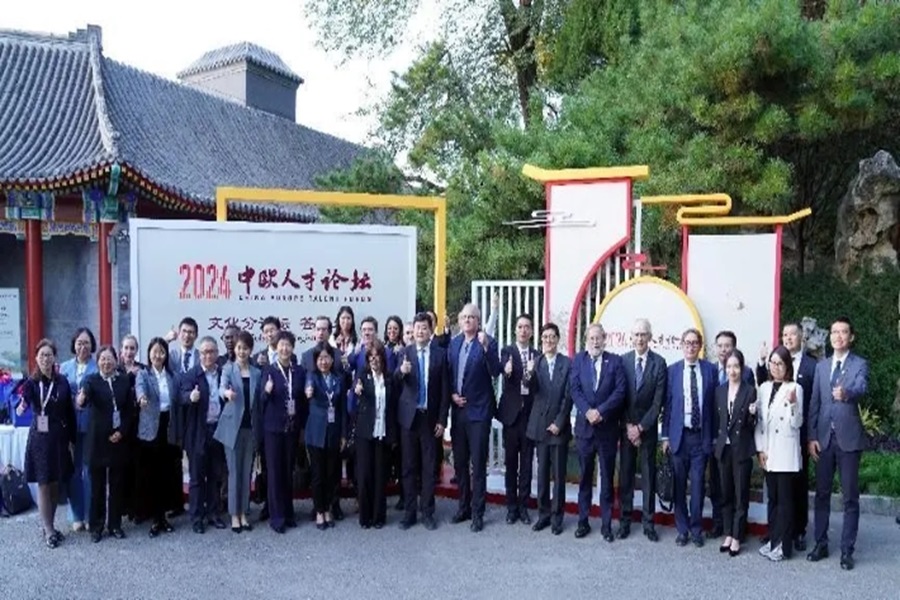Forum on Promoting Talent Exchanges and Cooperation Between China and Europe held in Beijing
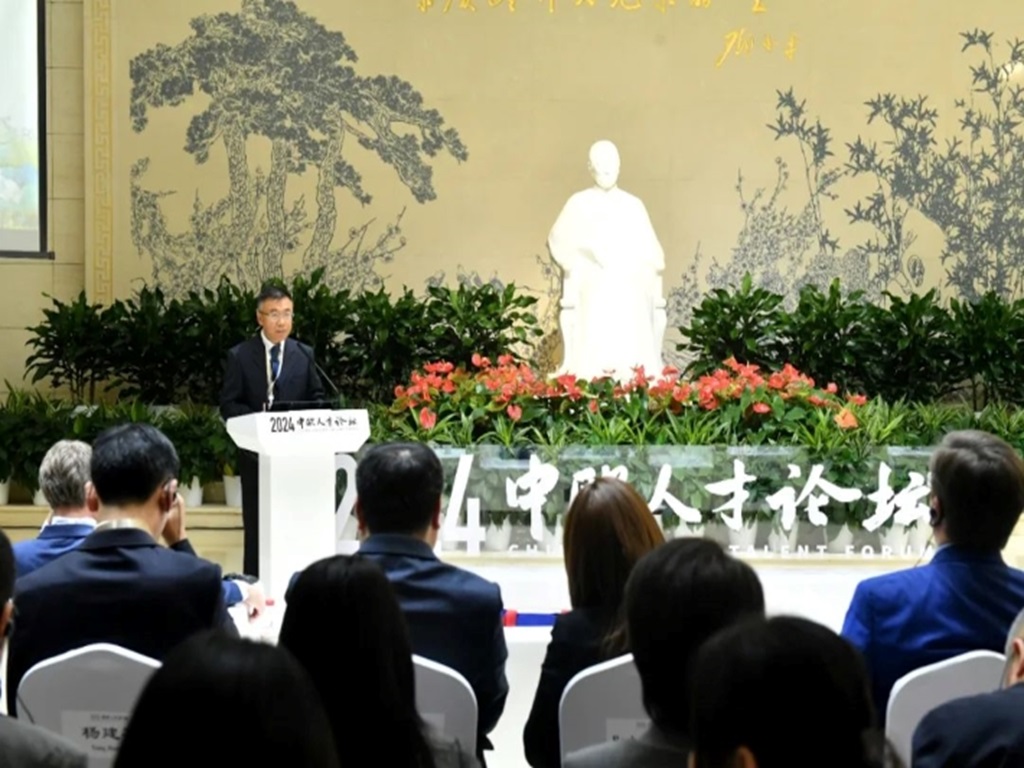
Over 40 politicians, experts, scholars and youth representatives from China and Europe attended the cultural sub-forum of the 2024 China-Europe Talent Forum themed Cultural Integration: A Bridge to Promote Talent Exchange and Cooperation Between China and Europe. Held in Beijing on 15 October, the event was co-hosted by the Beijing Talent Work Bureau and Switzerland’s Adecco Group, and organized by CICG Center for Europe and Africa, with guidance from China International Communications Group (CICG).
Liu Dawei, vice president of the CICG, and Antonio Miguel Carmona, president of Spain’s Friends of China Association, delivered keynote speeches at the forum. The forum was moderated by Zhao Lijun, president of the CICG Center for Europe and Africa (China Today).
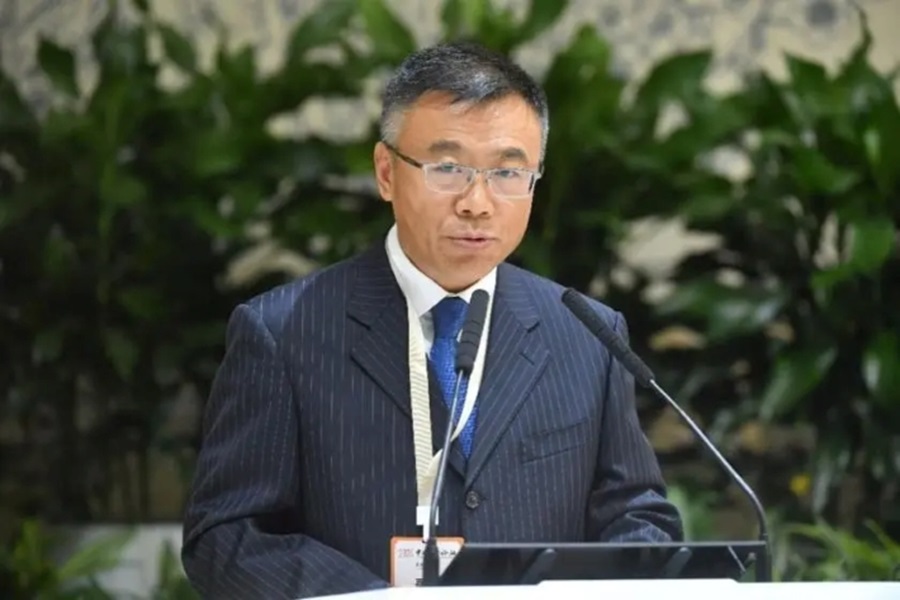
In his speech, Liu pointed out that cultural integration serves a unique role in promoting talent exchanges and cooperation between China and Europe. Exchanges and mutual learning between cultures help broaden the perspectives of talents; cooperative innovation helps cultivate versatile talents; and strengthening alignment in talent-related policies helps optimize the environment for talent mobility between China and Europe. As a comprehensive international communications institution, CICG has always been committed to promoting Chinese culture and facilitating exchanges and mutual learning between Chinese and foreign cultures. CICG will further expand cooperation on cultural exchanges with European countries with an aim to enhance mutual understanding and collaboration among the younger generation on both sides.
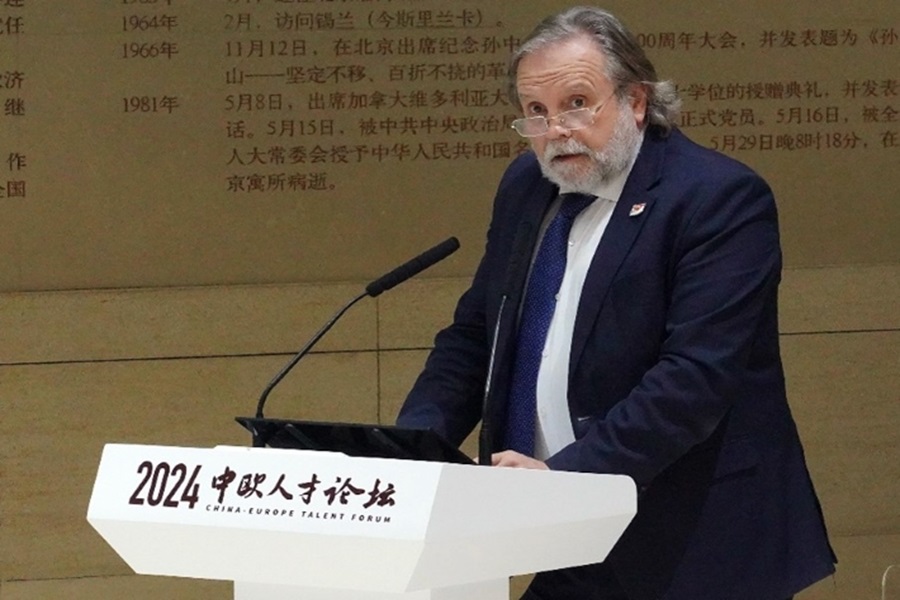
Carmona stated that President Xi Jinping’s Belt and Road Initiative has provided a platform for equal dialogue and communication for countries and different civilizations. In recent years, a series of protectionist measures taken by some Western countries against Chinese products have been false decisions that go against the current tide. Only by promoting exchanges and communication between regions and countries can we achieve common development.
The forum witnessed in-depth discussions among Chinese and foreign participants, including Wang Daquan, director-general of Chinese Service Center for Scholarly Exchange under the Ministry of Education; Fan Daqi, vice president of the Academy of Contemporary China and World Studies; Joël Ruet; chairman of the Bridge Tank in France; Robert Walker, professor at the Beijing Normal University and fellow of the Academy of Social Sciences in the UK; Zhang Jinling, fellow at the Institute of European Studies of the Chinese Academy of Social Sciences; Fang Youzhong, deputy dean of the School of European Studies at Beijing International Studies University; Barbara Dietrich, CEO and editor-in-chief of Diplomatic World; David Bartosch, fellow of the Institute of Advanced Studies in Humanities and Social Sciences at Beijing Normal University; Jia Jianxin, former cultural counsellor at the Chinese embassy in Austria; Zhao Yongsheng, fellow at the Academy of Global Innovation and Governance at the University of International Business and Economics in Beijing; Gilbert Van Kerckhove, rotating chairman of the Foreign Experts Committee of the BRITF Fund of China’s Ministry of Science and Technology; and Nils Bergemann, teacher at the University of International Business and Economics.
The discussion focused on three key topics: the overall situation and problems in today’s cross-cultural talent cultivation, the significance of cross-cultural competence in cultural integration, and how to improve cross-cultural management and governance capabilities. The participants provided valuable insights for promoting talent exchanges and cooperation between China and Europe.
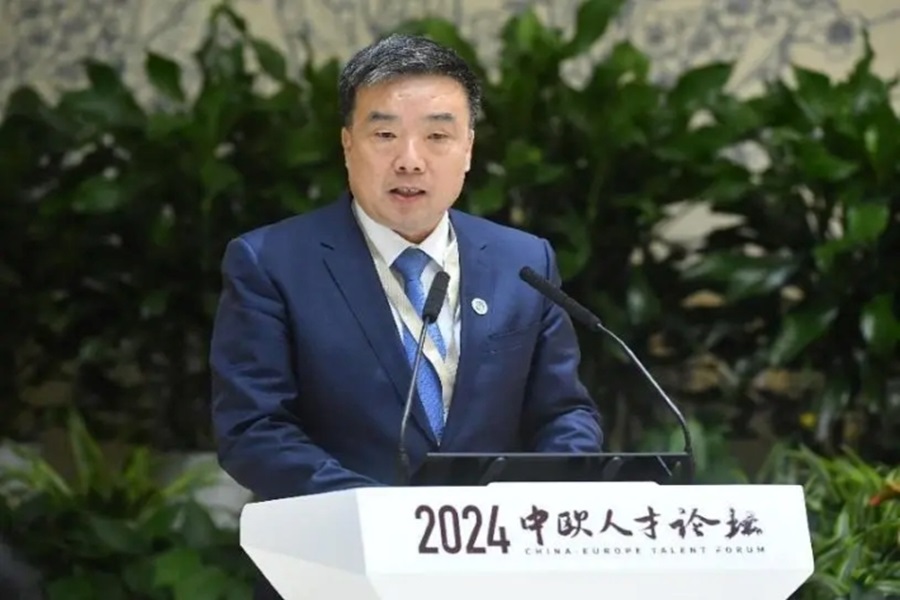
Wang Daquan said that international talents serve as a bridge for fostering understanding between different cultures and promoting connections between peoples. The Chinese Service Center for Scholarly Exchange has been promoting the going out and coming in of talents, expanding international platforms for educational exchange and cooperation to support cross-cultural talent cultivation. In the future, the center will collaborate with partner universities and institutions in both China and Europe to jointly build a high-quality, trusted, and secure ecosystem for sustainable development in international education, supporting the cross-cultural exchange and talent development.
Fan Daqi noted that as China-Europe relations continue to deepen, considerable progress has been made in the cultivation of cross-cultural talents on both sides, but challenges remain due to cultural differences, technological changes, and a complex international environment. He emphasized that China-Europe cross-cultural talents must enhance their knowledge reserves, engage in practical cross-cultural exchanges, and foster inclusive understanding across cultures, thereby improving their international insight, global competence, and collaborative abilities.
In his video speech, Walker stated that global geopolitical issues are becoming increasingly prominent, leading to divisions in the world and regional instability. There is now a vast literature that stresses that China is "different," which is heavily influenced by Western-centered thinking patterns and biases. He emphasized that cross-cultural exchange is the glue that binds the world together. Countries should strengthen the cultivation of cross-cultural talents to promote exchange and cooperation, and work together to establish a global trade system that aligns with the interests of the vast majority of nations.
Zhang Jinling stated that the significance of cross-cultural integration lies in the fact that civilizations can appreciate each other's beauty while valuing their own. China and Europe should, on the basis of equality and mutual respect, appreciate and support each other, discover the beauty in each other’s cultures, and deepen the exchange and mutual learning between their civilizations to achieve common progress.
Dietrich emphasized that open and collaborative innovation is a prerequisite for sustainable growth of the cultural and creative industries and of a prosperous creative economy. Hence, long-term prosperity can only be realised if continents work together. We must build bridges between China and Europe, not tariff walls. Collaboration in trade, science, technology, culture, and education between the two regions can be promoted through talent exchanges.
In his video address, Zhao Yongsheng noted that current exchanges between China and France, and China and Europe in general, especially in the fields of humanities and education, are facing numerous challenges. He cautioned against the gradual "instrumentalization" of these exchanges. On the occasion of the 60th anniversary of the establishment of diplomatic relations between China and France, he called for greater interaction between young students from both sides and the strengthening of cultural cooperation in various fields.
Bergemann highlighted the difference between the education systems of China and Europe. He said every education system has its strengths and weaknesses, noting that we should use the best of both: China’s efficiency and technological progress and Europe’s emphasis on creativity, collaboration, and personal development. This way, we can create an education system that prepares young people for the challenges of the future.
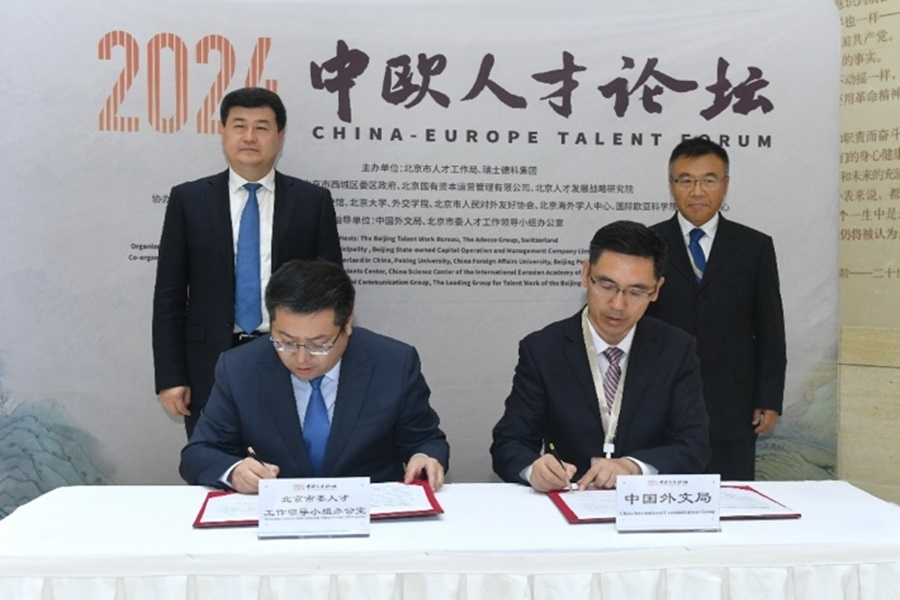
During the forum, Yang Jianping, director of the Personnel Department of the CICG, and He Yongjiang, deputy director of the Beijing Talent Work Bureau, signed a strategic cooperation agreement on talent exchange and collaboration on behalf of CICG and the Leading Group for Talent Work of the CPC Beijing Municipal Committee. This agreement aims to further expand areas of cooperation, deepen collaborative measures, and consolidate practical results, all in order to promote the high-quality development of international communication and enhance the development of high-level talents in Beijing. Liu from CICG, and Zhang Ruobing, director of the Beijing Talent Work Bureau, witnessed the signing.
In her concluding remarks, Zhao Lijun, president of the CICG Center for Europe and Africa (China Today), stated that after in-depth discussions, participants reached a broad consensus: the cultivation of cross-cultural talents is a key driving force for China-Europe relations and global development. Cross-cultural competence plays an irreplaceable role in cultural integration, and education, training, and practice are effective ways to improve cross-cultural management and governance capabilities. These shared insights will provide a solid foundation and important guidance for further deepening China-Europe talent exchanges and cooperation.
